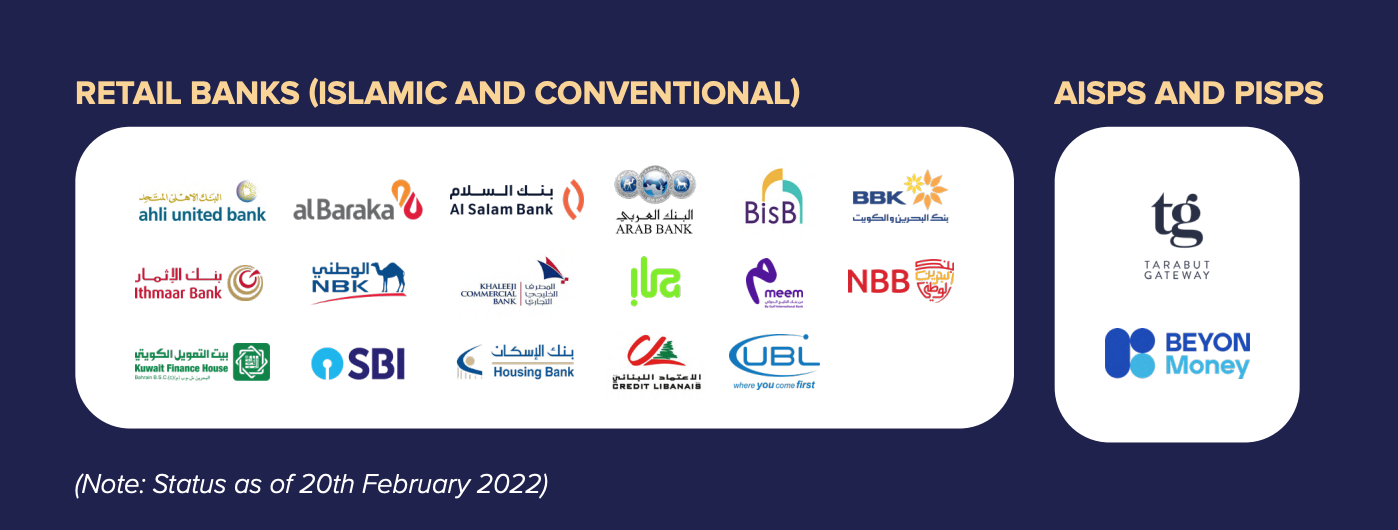Bahrain Fintech Bay, a fintech hub spearheaded by the government, has identified open banking APIs, artificial intelligence (AI), customer-centric models, and fintech as infrastructure as the four key trends in the domestic fintech ecosystem expected to boom this year on the back of regulatory initiatives and market developments.
These predictions were shared in the newly released Bahrain Fintech Ecosystem 2022 report, which looks at the evolution of the local fintech landscape since the release of the previous edition of the report back in 2018, and shares findings from an industry survey.
A pool of 230 industry stakeholders, including startup executives, bankers and investors, polled as part of the research identified open banking APIs (32%) as the trend with the highest potential to grow in the country in 2022, a movement that will rise on the back of previous efforts from the government and policymakers to set the foundation for secure data sharing across the financial ecosystem.
Open banking, a trend that originated in Europe, refers to the use of open APIs to enable the sharing of banking data between two or more unaffiliated parties to deliver enhanced capabilities to customers. For customers, open banking means the ability to share their data in a secure manner to the companies they see fit, and benefit from improved customer experience and more tailored products and services.
In the Middle East, Bahrain has been at the forefront of the open banking movement, having introduced back in 2018 open banking regulations that mandate all retail banks to grant licensed third-party providers access to customer data when consent is granted.
In September 2021, the country entered the second phase of implementation of its Bahrain Open Banking Framework, which sets out a number of capabilities retail banks and financial institutions must put in place by June 20, 2022, including those related to services such as open data sharing, domestic and international standing orders, international future dated payments, and bulk/batch payments.
This conducive regulatory landscape has led to the emergence of a burgeoning open banking ecosystem which comprises regional leaders such as Tarabut Gateway and 15 participating banks including the National Bank of Bahrain (NBB), Ahli United Bank (AUB), and Al Baraka Banking Group.
Founded in 2018 in Manama, Tarabut Gateway has grown into the largest regulated open banking platform in the Middle East and North Africa (MENA), connecting a regional network of banks and fintechs. The startup has raised US$25 million in funding, making it one of the most well-funded startups in MENA, and has inked partnerships with prominent stakeholders, including Riyad Bank which will see both organizations working together to develop an open innovation platform in Saudi Arabia.

As of Feb 20, 2022, there were 15 participating banks compliant with the open banking framework and two licensed account information service providers (AISPs) and payment initiation service providers (PISPs), Source: Bahrain Fintech Ecosystem 2022, Bahrain Fintech Bay
After open banking APIs, AI solutions (18%) were identified as the second trend industry stakeholders believed will have the highest potential for growth this year.
AI has been a growing trend around the world and the technology is being implemented across a broad range of processes and functions, including electronic know-your-customer (e-KYC), chatbots, banking customer care and lending, the report says.
In Bahrain, though there have been some AI implementations, these have been done in silos through standalone applications. In the coming years, the industry will shift its strategy into full blown integration of AI into the operational and customer service interface as industry participants realize there is no way around it but to embrace the technology in order to remain relevant, the report says.
The third biggest fintech trend this year was identified as customer centric models (17%). In Bahrain, banks have commonly taken the first step in digital transformation mainly within the customer interface, front-end operations, by, for example, streamlining bank account opening using e-KYC, and improving payment initiation via mobile apps, the report says.
Moving forward, financial institutions will move onto more advanced add-on services such as personal finance management, a trend which will be built on rising competitive pressure coming from new, digital-first challengers.
Finally, the fourth biggest fintech trend stakeholders cited for 2022 is fintech as infrastructure providers (15%), or fintech enablers. These companies provide platforms and technologies for financial institutions and fintechs to better serve their customers. Such solutions can be core infrastructure, customer onboarding solutions, or payments systems.
Fintech as infrastructure providers will see rising traction as banks in Bahrain start to increasingly look to partner up with software providers to help them upgrade or replace their existing IT system infrastructure, the report says. This will be part of a broader shift in the industry where incumbents will move from their original “patchwork solutions” strategy towards the migration onto complete modernized technological infrastructure across the spectrum.

Fintech trends with the highest potential to grow in Bahrain, Source: Bahrain Fintech Ecosystem 2022, Bahrain Fintech Bay
In addition to a review of the top fintech trends expected for this year, the Bahrain Fintech Ecosystem 2022 report also looks at the growth of the startup industry. Between 2018 and 2021, the number of fintech companies in the country doubled to more than 120 startups, showcasing the vibrant ecosystem, the report says.
Though there is no official funding amount for the year 2021, several notable rounds were recorded including Rain’s US$110 million Series B, as well as Tarabut Gateway’s US$13 million seed and US$12 million pre-Series A.








No Comments so far
Jump into a conversationNo Comments Yet!
You can be the one to start a conversation.